Related Research Articles

The Province of Natal, commonly called Natal, was a province of South Africa from May 1910 until May 1994. Its capital was Pietermaritzburg. During this period rural areas inhabited by the black African population of Natal were organized into the bantustan of KwaZulu, which was progressively separated from the province, becoming partially autonomous in 1981. Of the white population, the majority were English-speaking people of British descent, causing Natal to become the only province to vote "No" to the creation of a republic in the referendum of 1960, due to very strong monarchist, pro-British Commonwealth, and anti-secessionist sentiment. In the latter part of the 1980s, Natal was in a state of violence between the Inkatha Freedom Party and the African National Congress, with violence subsidising soon after the first non-racial election in 1994.

The Natalia Republic was a short-lived Boer republic founded in 1839 after a Voortrekker victory against the Zulus at the Battle of Blood River. The area was previously named Natália by Portuguese sailors, due to its discovery on Christmas. The republic came to an end in 1843 when British forces annexed it to form the Colony of Natal. After the British annexation of the Natalia Republic, most local Voortrekkers trekked northwest into Transorangia, later known as the Orange Free State, and the South African Republic.
Ezemvelo KZN Wildlife is a governmental organisation responsible for maintaining wildlife conservation areas and biodiversity in KwaZulu-Natal Province, South Africa. Their headquarters is in Queen Elizabeth Park situated on the northern slopes of Pietermaritzburg, the KwaZulu-Natal provincial capital. Prior to 1994, it was known as the Natal Parks Board.

Verulam is a town 24 kilometres north of Durban in KwaZulu-Natal, South Africa and part of the eThekwini Metropolitan area.

The University of Natal was a university in the former South African province Natal which later became KwaZulu-Natal. The University of Natal no longer exists as a distinct legal entity, as it was incorporated into the University of KwaZulu-Natal on 1 January 2004. It was founded in 1910 as the Natal University College in Pietermaritzburg and expanded to include a campus in Durban in 1931. In 1947, the university opened a medical school for non-white students in Durban. The Pietermaritzburg campus was known for its agricultural engineering programmes, hence the nickname "the farmers" whilst the Durban campus was known as "the engineers," as it concentrated on other engineering programmes.
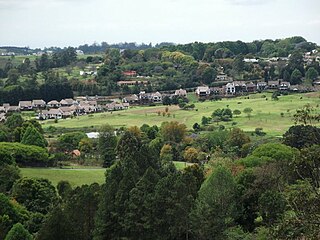
Botha's Hill is a small town outside Hillcrest in KwaZulu-Natal, South Africa. It remains a peaceful beautiful hill where regular country style food and craft markets are held. It is the gateway to the Valley of a Thousand Hills. Kearsney College moved to Botha's Hill in 1939. Alan Paton, the author of Cry, the Beloved Country and Too Late the Phalarope lived here until his death on 12 April 1988.

The Colony of Natal was a British colony in south-eastern Africa. It was proclaimed a British colony on 4 May 1843 after the British government had annexed the Boer Republic of Natalia, and on 31 May 1910 combined with three other colonies to form the Union of South Africa, as one of its provinces. It is now the KwaZulu-Natal province of South Africa.

Verulam House is located in Verulam Road, St Albans on the northwestern side between Church Crescent and Britton Avenue opposite College Street. It has previously been referred to as Diocesan House and also known as the Bishop's Palace. It is of early nineteenth-century origin and is a Grade II Listed Building.

Thomas Henry Hassall was an Anglo-Australian politician.

The KwaZulu-Natal Division of the High Court of South Africa is a superior court of law with general jurisdiction over the KwaZulu-Natal province of South Africa. The main seat of the division is at Pietermaritzburg, while a subordinate local seat at Durban has concurrent jurisdiction over the coastal region of the province. As of August 2013 the Judge President of the division is Chiman Patel.
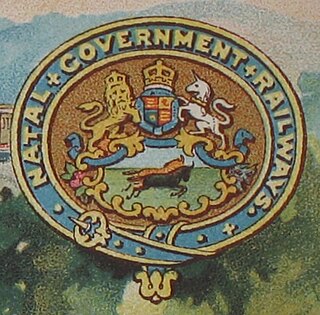
The Natal Government Railways (NGR) was formed in January 1877 in the Colony of Natal.

Charles Rawden Maclean, also known as "John Ross", was born on 17 August 1815 in Fraserburgh and died 13 August 1880 at sea on the RMS Larne while en route to Southampton. In a tribute to him during the re-dedication of his grave in Southampton in 2009, the Zulu War author and broadcaster Ian Knight said:
Maclean was a champion of liberty and his stone will be one of the few inscriptions in a British cemetery which commemorates a positive interaction between the British and Zulu people; most existing memorials commemorate individuals who were involved in Anglo-Zulu conflict.

The Natal Railway 0-4-0WTNatal of 1860 was a South African steam locomotive from the pre-Union era in the Natal Colony.
Owen Pieter Faure Horwood was a South African economist, politician, leader of the National Party in the province of Natal and Finance Minister 1975 to 1984. He was married to Helen Watt, sister of Janet Smith, the wife of Ian Smith, the Prime Minister of Rhodesia.

The Natal Railway 0-4-0STDurban of 1865 was a South African steam locomotive from the pre-Union era in the Natal Colony.
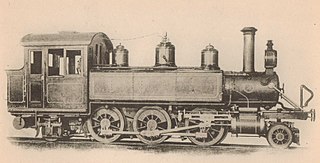
The Natal Government Railways Class I 2-6-2T of 1901 was a South African steam locomotive from the pre-Union era in the Colony of Natal.

The Natal Government Railways Class I 2-6-0 of 1902 was a South African steam locomotive from the pre-Union era in the Colony of Natal.

The Battle of Maqongqo was fought on 29 January 1840 during the First Zulu Civil War. Due to military defeats, the Zulu king Dingane had lost the respect of a significant portion of the Zulu people. His brother Mpande sought to separate his followers from Dingane and drew support from an alliance with Boer settlers led by Andries Pretorius.
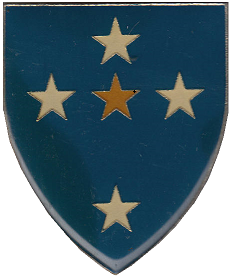
Natalia Regiment was a Citizen Force infantry regiment of the South African Infantry.
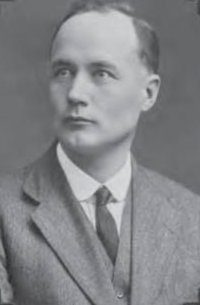
John William Bews was a Scottish born South African botanist.